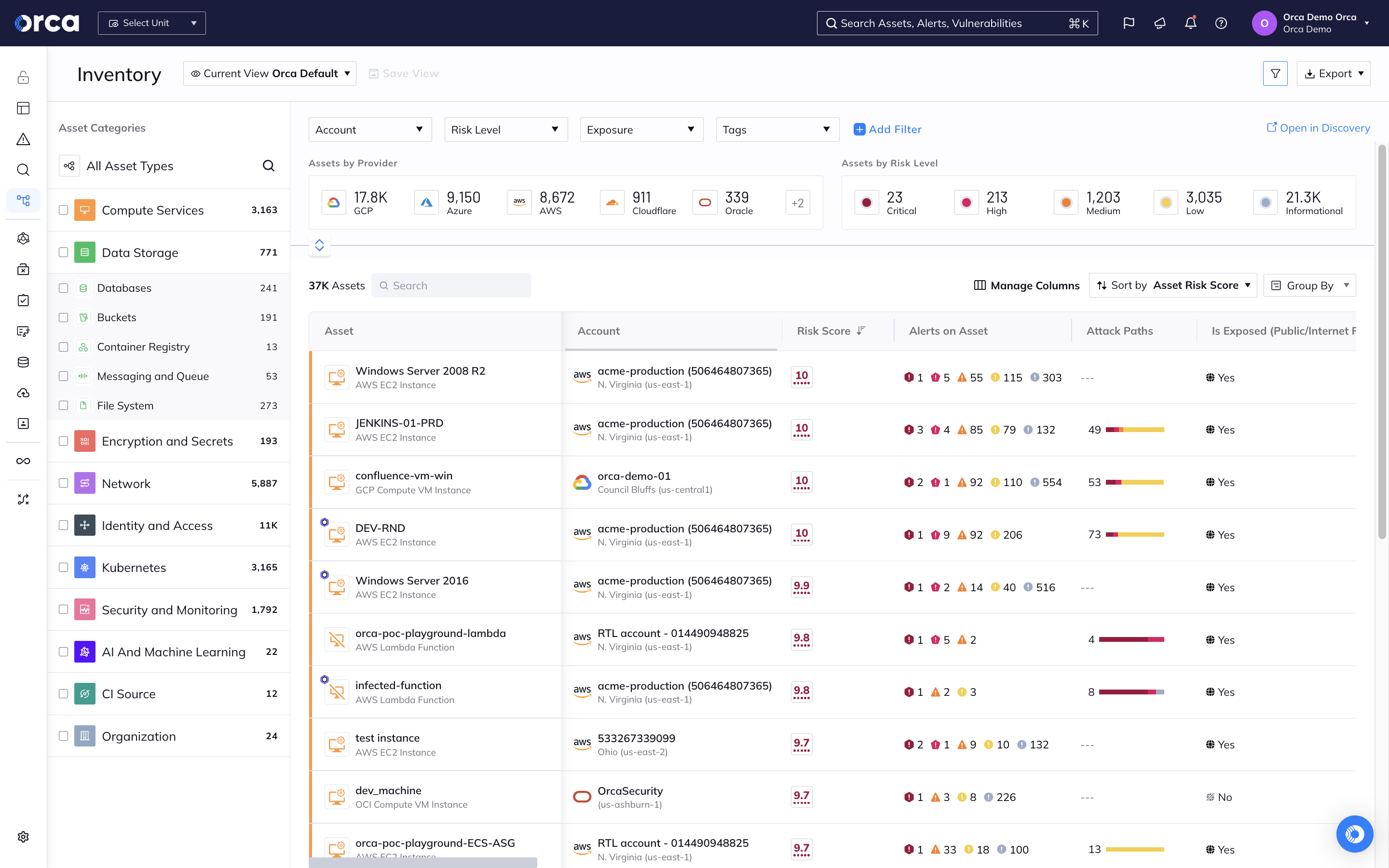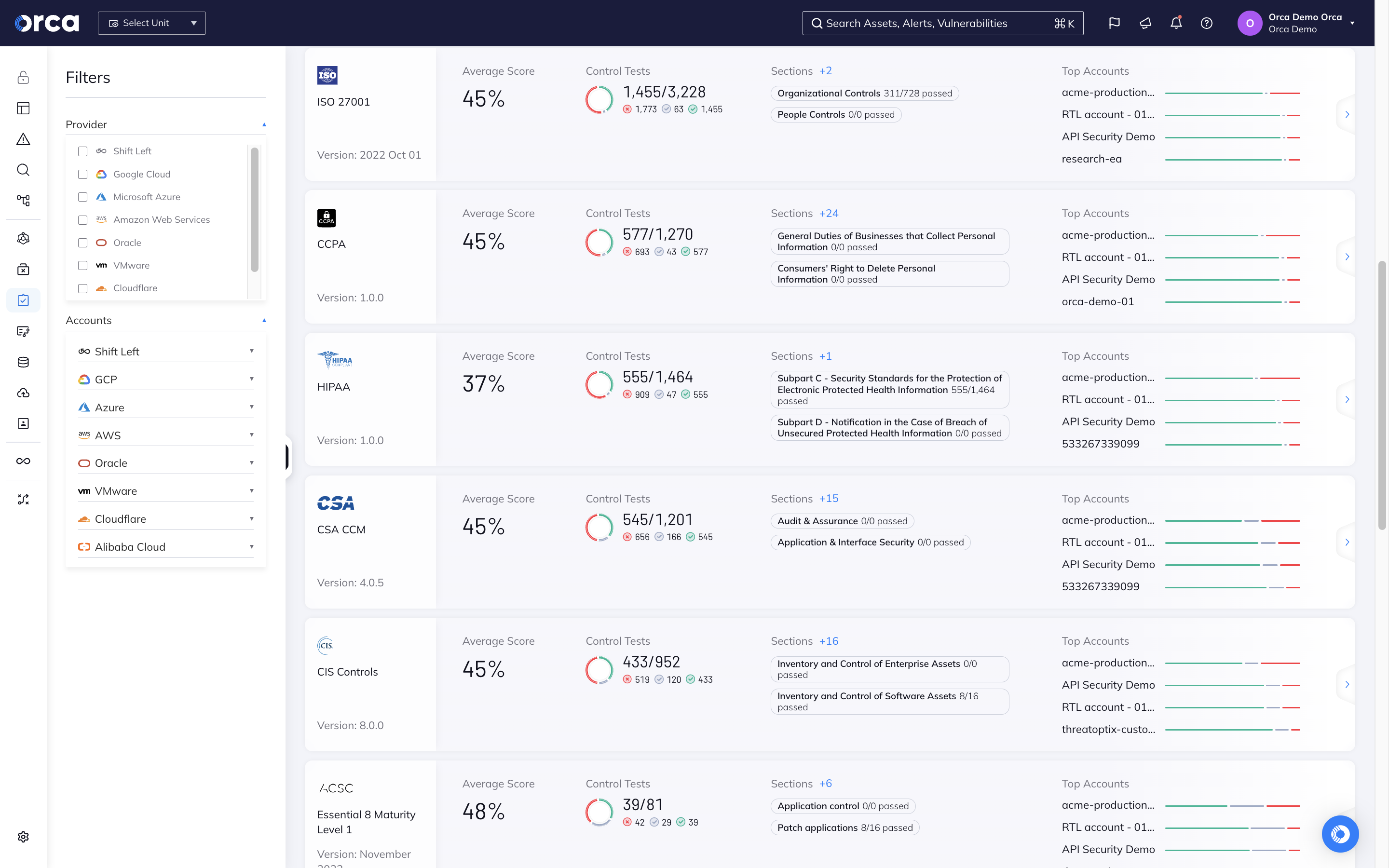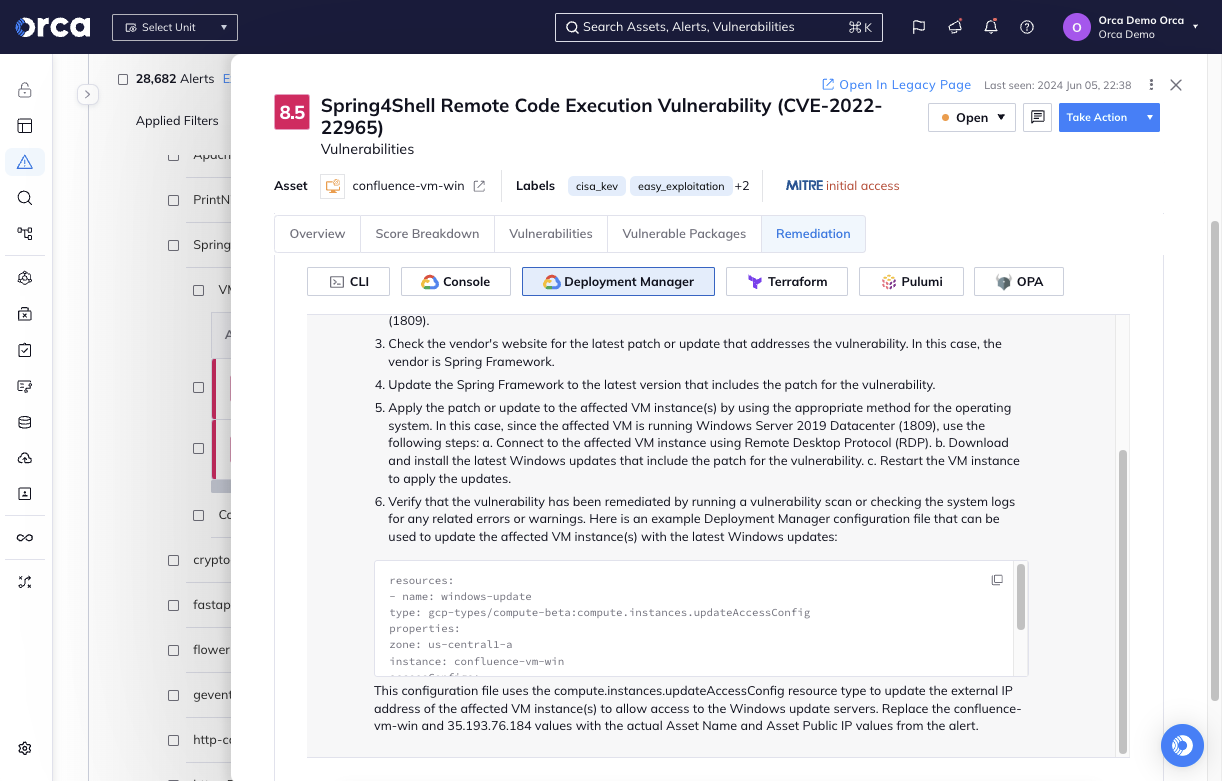Cloud Security Posture Management (CSPM)
Continuously monitor for cloud misconfigurations, policy violations, and compliance risks
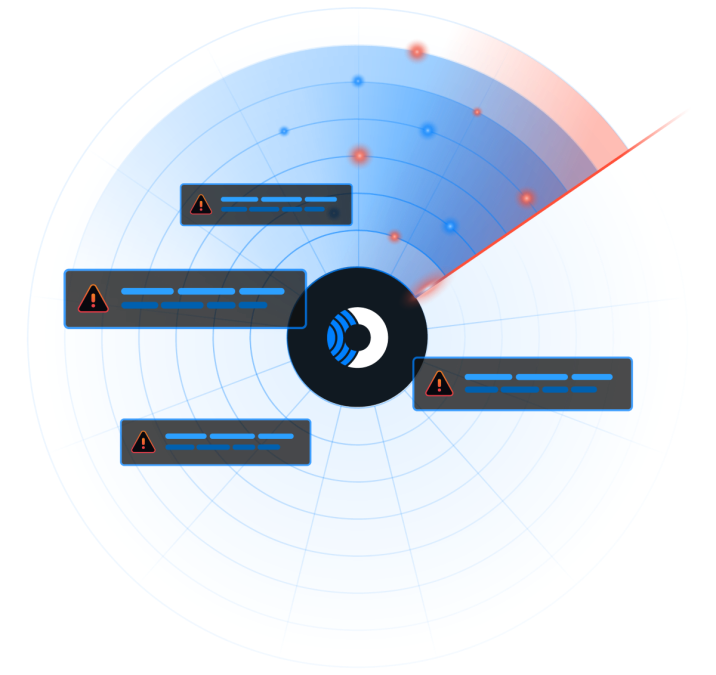
The Challenge
Traditional CSPM Isn’t Enough
Traditional CSPM solutions help organizations stay compliant and address cloud risks such as misconfigurations and overly permissive identities. However, a CSPM only covers one part of the attack surface, leaving cloud workloads, event monitoring, and sensitive data discovery out of the picture.
Traditional CSPMs lack insight into cloud workloads, which means they cannot detect vulnerabilities, malware, data at risk, or exposed secrets.
Security teams must supplement traditional CSPMs with multiple siloed tools, which results in constantly having to switch consoles, duplicating efforts, and hindering consistency.
Siloed or ‘integrated’ tools lack shared context, resulting in contradictory alerts and ineffective alert prioritization.
Our Approach
Orca Defines the Future of CSPM
Orca consolidates cloud workload, configuration, identity & entitlement security, container security, sensitive data discovery, and detection & response all in one platform across the entire SDLC. This unified approach allows Orca to understand the full context of risks and recognize when seemingly unrelated issues can create dangerous attack paths. Leveraging these insights, Orca is able to prioritize risks effectively, reducing alert fatigue and ensuring that security teams stay focused on what matters most.
Receive alerts when security policy violations occur, such as misconfigured S3 buckets, Google storage buckets, KMS keys, Elasticsearch and RDS databases, and much more.
Leverage 2,500+ configuration controls across 10+ categories, including authentication, data protection, logging and monitoring, network configurations, Kubernetes configurations, and system integrity.
Instead of getting inundated with alerts, security teams can rely on Orca to prioritize the risks that endanger the company’s most critical assets so they can be addressed first.
Additionally, Orca continuously checks for misconfigurations across multi-cloud estates to ensure controls are set securely and comply with best practices and industry and regulatory standards.
Understand risks across your entire tech stack
Unlike other CSPMs, Orca also scans cloud workloads and identities to surface full insights into the risks across your entire tech stack. This enables Orca to understand which risk combinations pose the greatest danger, so your teams can address those first.
- By scoring and prioritizing attack paths, security teams can focus on a much smaller number of dangerous attack paths versus sifting through hundreds of siloed alerts.
- Orca presents potential attack paths in a visual graph showing the end target as well as detailed information on each step.
- For each attack path, Orca shows which risks need to be remediated to break the attack path, further prioritizing issues for remediation if they break multiple paths.
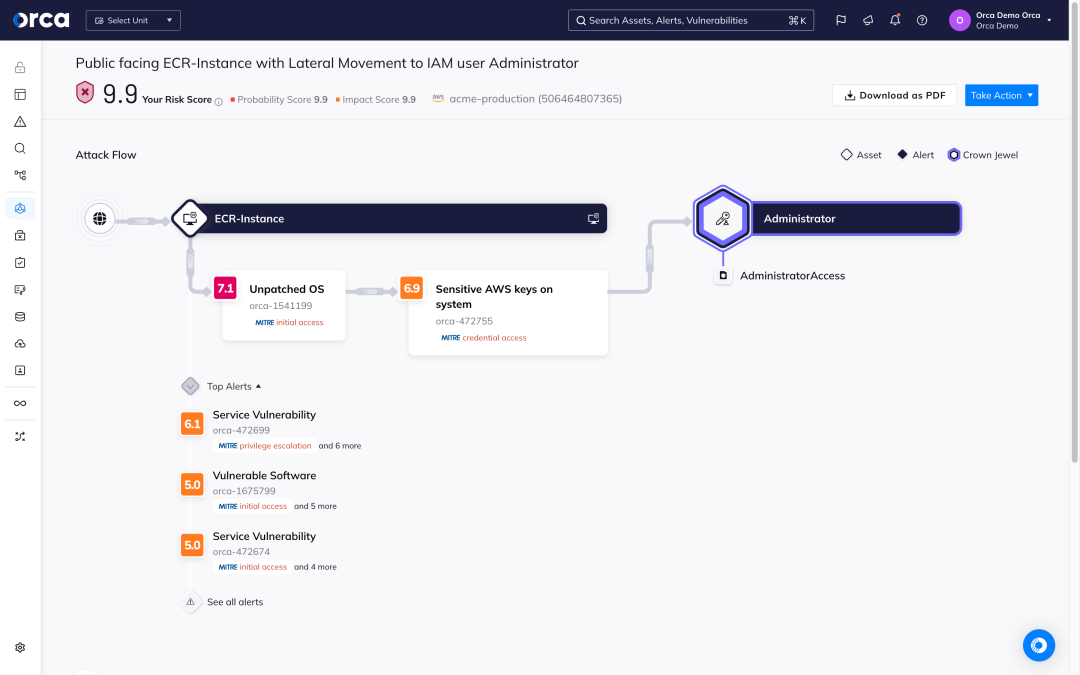
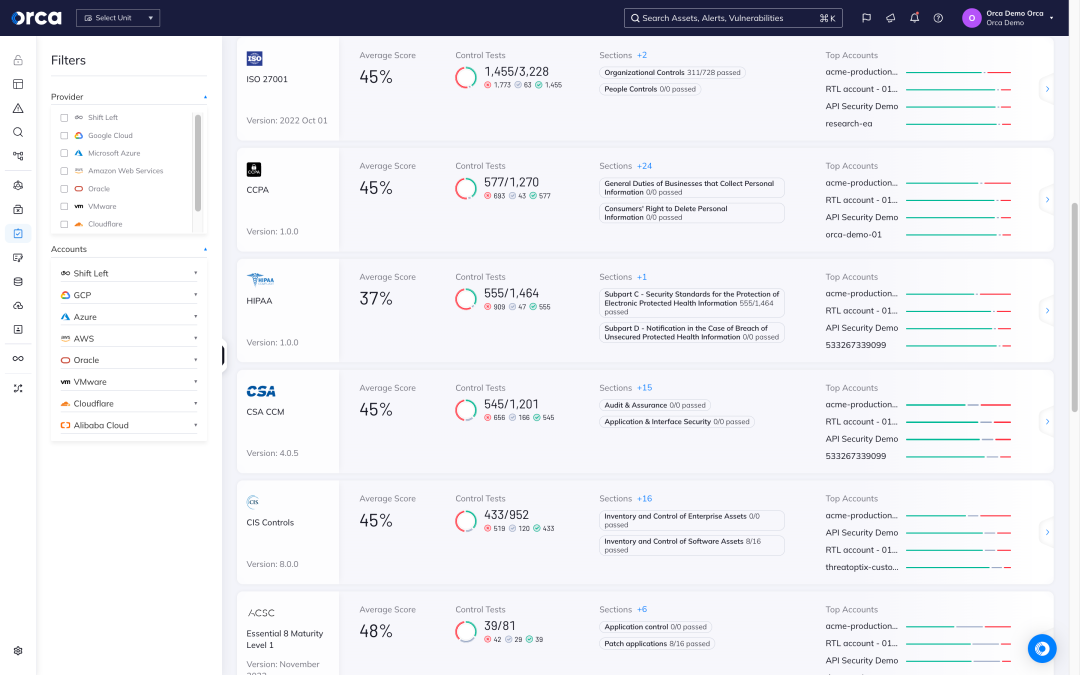
Ensure multi-cloud compliance
Another important CSPM function that Orca provides is ensuring that cloud resources comply with regulatory frameworks and industry benchmarks, including data privacy requirements. Orca unifies compliance for cloud infrastructure workloads, containers, identities, data and more – all in a single dashboard.
- Orca checks cloud configurations and policies against more than 150 industry and regulatory frameworks, including Orca Best Practices and a wide range of CIS control benchmarks.
- Unlike other CSPMs, Orca also discovers sensitive data in your cloud environment and notifies you when data, such as PII, is vulnerable through potential exploitation paths.
- With this insight, Orca helps organizations prioritize data security and demonstrate their compliance with mandates such as PCI-DSS, GDPR, HIPAA, and CCPA.
Remediate risks at the speed of the cloud
Orca offers auto remediation and guided remediation options, helping you to quickly address any detected risks – reducing your Mean Time to Remediation (MTTR) and improving your cloud security posture.
- Configure automation rules that remediate alerts as soon as they are detected without requiring any manual intervention.
- Generate high-quality remediation instructions for each alert leveraging generative AI built into the Orca platform.
- Copy and paste remediation code into a command line interface or Infrastructure as Code (IaC) provisioning tools, or follow steps in the console.
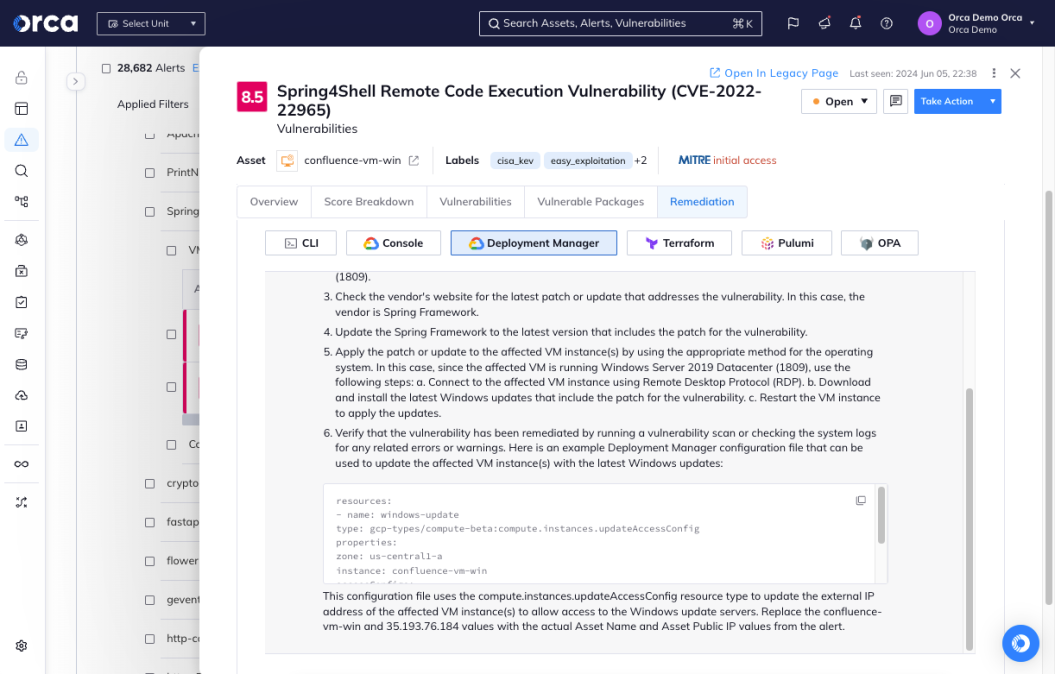
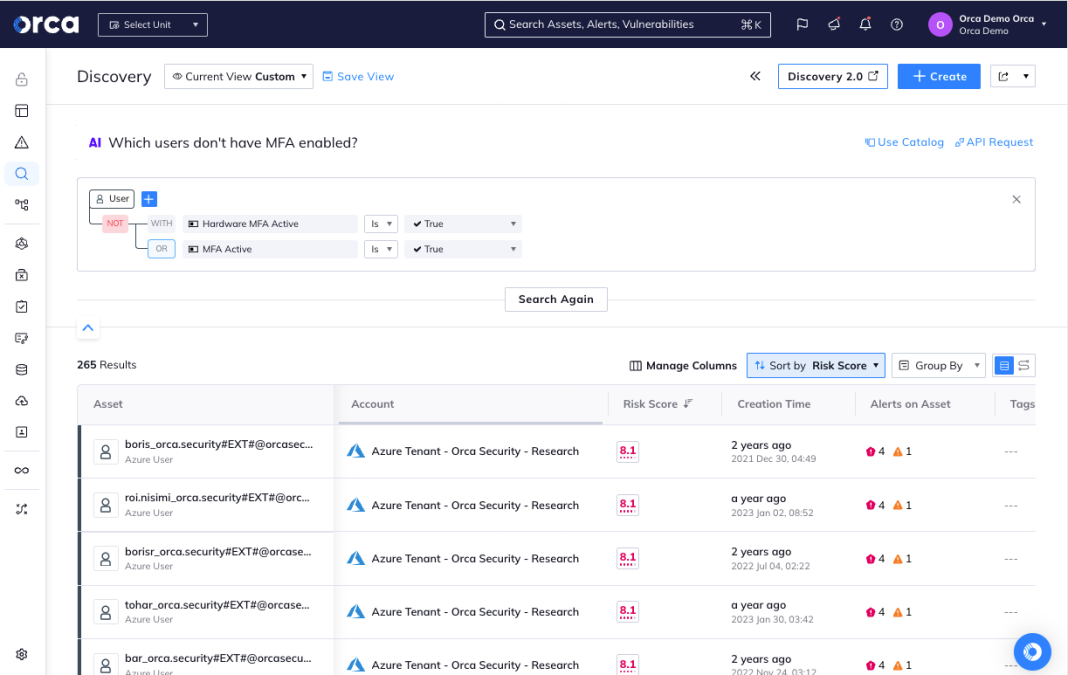
Easily search your cloud environment
Leveraging AI, Orca greatly simplifies searches by enabling users to ask natural language questions – significantly reducing time-to-discovery and improving compliance.
- Ask plain language questions such as ‘Do I have any vulnerabilities that are public facing?’ or “Do I have any unencrypted databases with sensitive data exposed to the Internet?”
- Regardless of skill level, Orca allows users across the organization to easily understand exactly what’s in their cloud environment.
- Advanced users can craft complex and granular queries much faster than when having to code in a proprietary query language.
